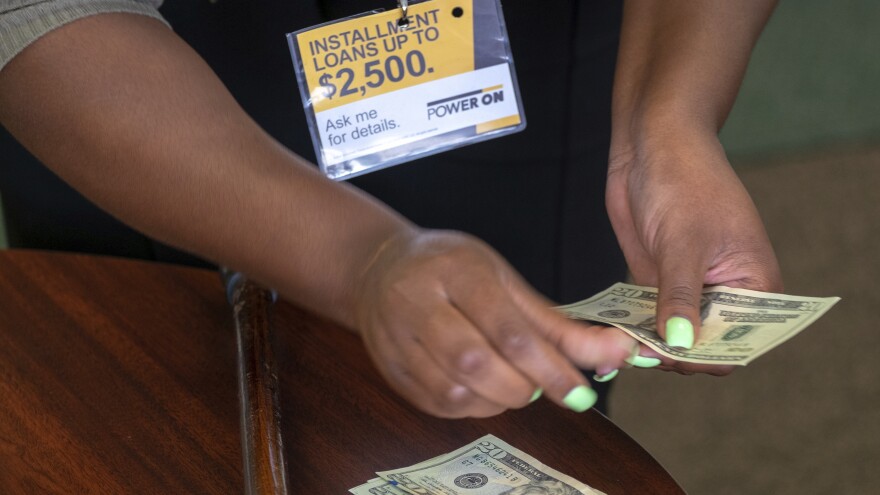Federal regulators have finalized a new rule for payday lenders that strips out a key provision crafted during the Obama administration. Under the revised rule, lenders will no longer have to check that borrowers can repay their loan when it comes due.
Consumer advocates say that without that protection, borrowers often get trapped having to borrow again and again, at interest rates of up to 400%.
The Consumer Financial Protection Bureau — a watchdog agency set up in the wake of the 2008-09 financial crisis — tried to curb the practices of payday lenders, drafting a rule that was finalized in 2017. The Trump administration has been working to water down the rule since taking control of the consumer bureau late that year.
The payday loan industry welcomed the revision.
"The CFPB's action will ensure that essential credit continues to flow to communities and consumers across the country, which is especially important in these unprecedented times," said D. Lynn DeVault, chairman of the Community Financial Services Association of America, an industry trade group.
Consumer groups blasted the content of the new rule and its timing during a pandemic that has put tens of millions of people out of work.
"There is never a good time to enable predatory loans carrying 400% interest rates, but this is the worst possible time," said Mike Calhoun, president of the Center for Responsible Lending. "The pain caused by the CFPB gutting the payday rule will be felt most by those who can least afford it, including communities of color who are disproportionately targeted by payday lenders."
The revised rule leaves in place another Obama-era provision that's designed to limit the ability of payday lenders to make repeated attempts to collect from borrowers' bank accounts. That measure — which is currently on hold under a court order — may help to avoid costly overdraft fees.
Copyright 2021 NPR. To see more, visit https://www.npr.org. 9(MDA5NTM4MTIyMDE0MTg3NDc2MTVlZjdmNQ001))








